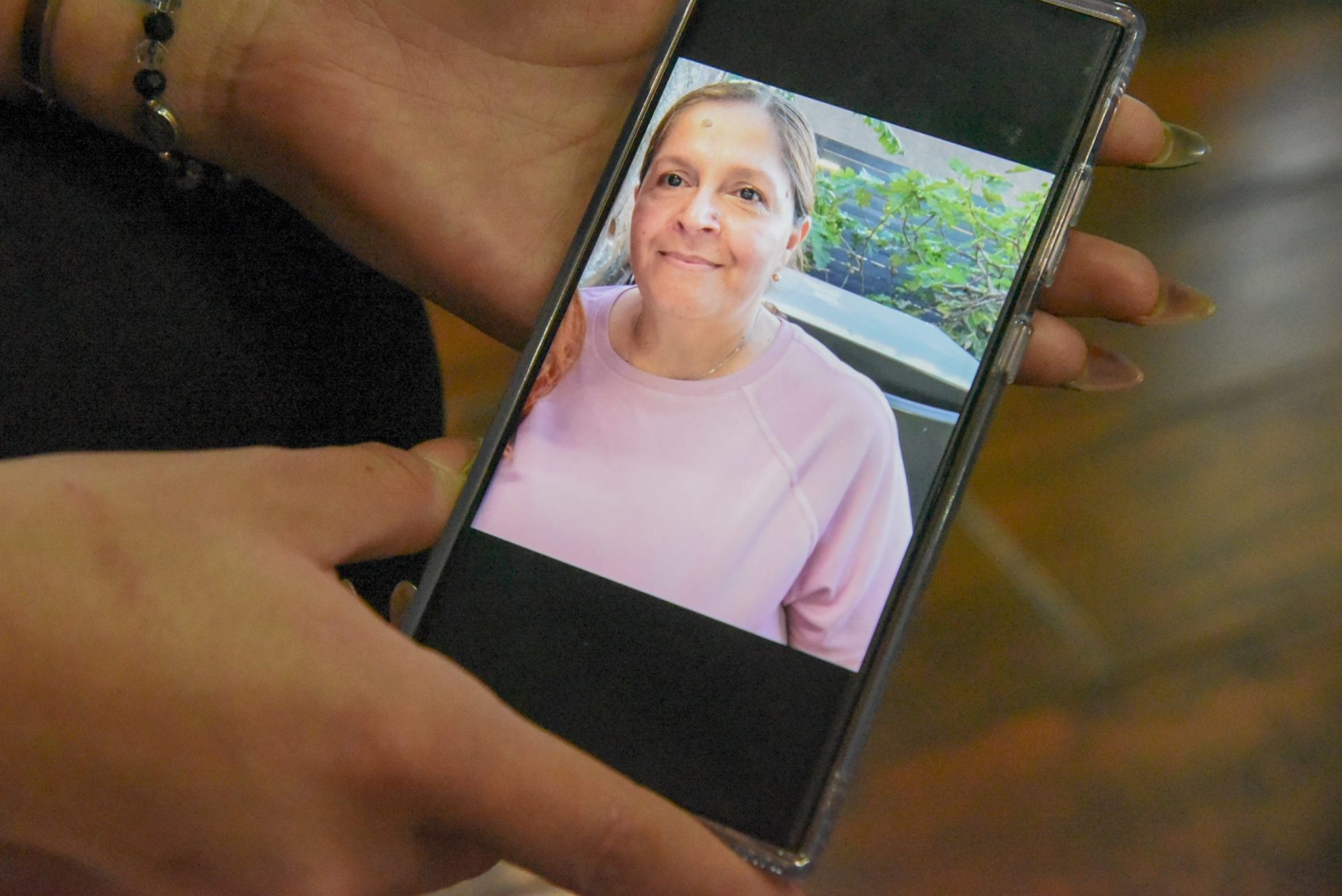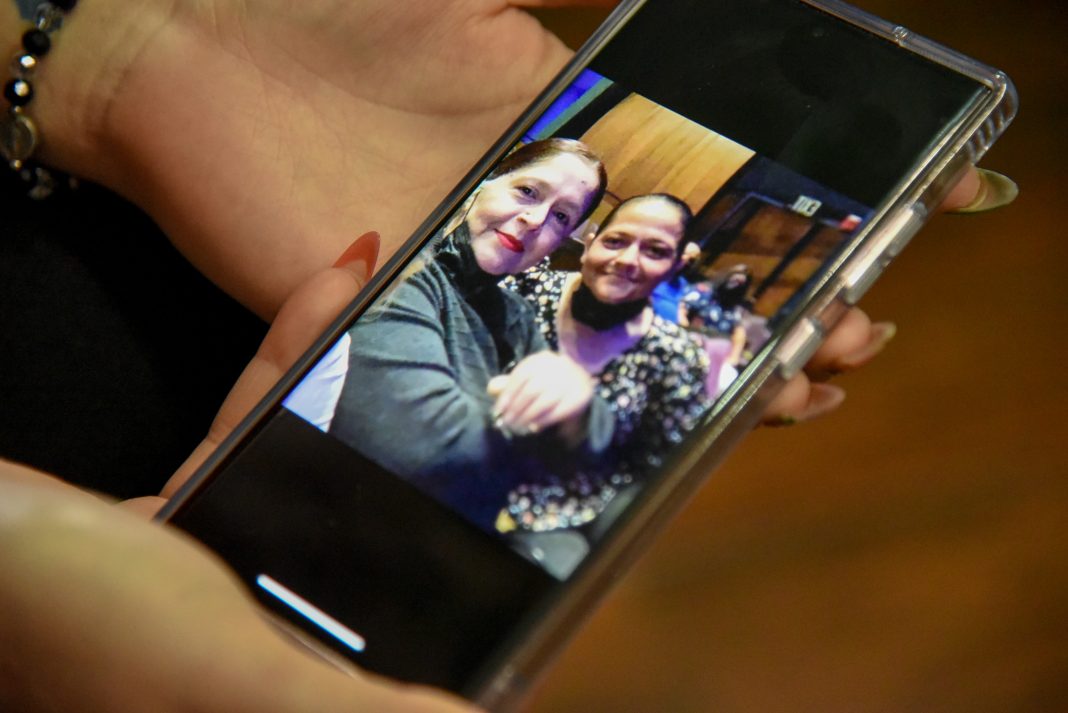Two Rio Grande Valley women traveled across the Rio Grande into Mexico in late February but when they suddenly stopped sending updates to their family back home, they filed a missing persons report. Unlike the quick response seen in the case of the four people who went missing last week in Matamoros, their case remains unsolved and their family lives on fragile hope.
Maria Guadalupe Ramirez, 27, is waiting to hear news of her mother, Marina Perez Rios, 48.
Local and federal authorities were notified. The FBI confirmed they were aware of the situation but could not disclose details to the media.
“I heard about these other poor people in Matamoros. It took them 96 hours to find them,” Ramirez said, referring to the four U.S. citizens kidnapped March 3 and found four days later.
Videos surfaced online immediately after the assault that left two dead. But leads are seemingly dry in the case of three missing women.
“It’s been 13 days with my mom and aunt,” Ramirez said on Thursday.
On Friday, Feb. 24, Ramirez’s mother, Marina, and her aunt, Maritza Trinidad Perez Rios, 47, packed up clothes and other items they intended to sell at an open-air market, known as a tianguis, in Montemorelos, Nuevo Leon, that weekend.
Marina and Maritza grew up in that Mexican border state and became legal permanent residents in the U.S. later in life.
Reports of violence and insecurity kept them in Peñitas for a while, but recently, they began working on restoring their father’s Nuevo Leon home and were drawn to the markets as a way to supplement their income.
Maritza has a carwash business and cuts grass for a living. Ramirez’s mother, Marina, was a home healthcare provider who was on medical leave while she recovered from a surgery in September that removed a grapefruit-sized tumor from her uterus.

While she healed, Marina started going to Mexico almost every weekend, her daughter said, to sell used clothing.
In spite of the ongoing reports of organized crime, many, like Marina, held on to a common belief, her daughter explained.
“It’s like how people say,” Ramirez explained. “Yes, they’re bad,” she said, referring to members of organized crime, “but they don’t mess with people.”
A letter of apology authored by the Gulf Cartel sent in the case of the Matamoros kidnapping furthers credibility on that belief.
Like many who let their guards down believing their innocence protects them, Marina started going to Mexico often. “Se confiaron,” her daughter said: they trusted.
Marina and her sister, Maritza, crossed into Mexico on Feb. 24 in an old 1996 Silverado pickup truck and picked up their friend, Dora Alicia Cervantes Saenz, 53, on the Mexican side.
The next day, Marina called Ramirez through FaceTime when they reached Doctor Coss, Nuevo Leon. Officials told Ramirez the truck was later observed on cameras veering left toward a road extending southeast toward Mendez, Tamaulipas.
An hour later, early around 6 a.m., while it was still dark outside, the truck was seen turning back on the road and heading down southwest toward General Terán, Nuevo Leon — only a 20-minute drive away from their final destination, Montemorelos, Nuevo Leon.
Ramirez wonders why the women, all native Nuevo Leon residents, would have taken a wrong turn. But it troubles her that they were driving before daylight.
“It also makes me wonder if it was the time at which they left that would have made a difference,” Ramirez wondered on Thursday. “Could have been two hours late. They’d still be here. Maybe right now, they’d have come home.”
Aside from the surveillance video, investigators in Mexico attempted to ping the phones of the women to find their locations, but Ramirez was told they were not able to access the U.S. phones belonging to her mother and aunt. Dolores’ phone, the woman from Mexico, showed the last location was somewhere in Tamaulipas.
No one has yet found the old pickup truck either.
“The last update I received was about two or three days ago. Monday, it was on Monday,” Ramirez recalled on Thursday. “They called me and they said that they were going to have a really big search.”
The search was set to take place in Mexico. Ramirez dropped off DNA samples in Mexico to help authorities identify her mother and aunt, in case they’re found as victims of an accident or crime.
As of Thursday, she had not received news.
“How is there no news or anything being said at all?” she wondered.
Ramirez urges collaboration between the U.S. and Mexican authorities.
For now, she’s tasked with waiting and carrying on with daily responsibilities, like going to work and helping care for her two young children.
“It’s tough because every day of not knowing is just every day your mind keeps going crazy,” Ramirez explained. “Just wondering has she eaten? Has she drunk water? Have they done anything to hurt her?”
Staying optimistic has become a guilt-laden goal.
“It’s like trying to forget, but you can’t forget; trying to put it aside, but you can’t put it aside,” Ramirez said. “But we can’t lose hope. That’s all we have.”
Anyone with any information on the missing women is encouraged to reach out to the FBI. Tips can be made anonymously to tips.fbi.gov.
The case was also reported to the Peñitas Police Department. Anyone who has information on the case is encouraged to report it to their office at (956) 581-3345.




